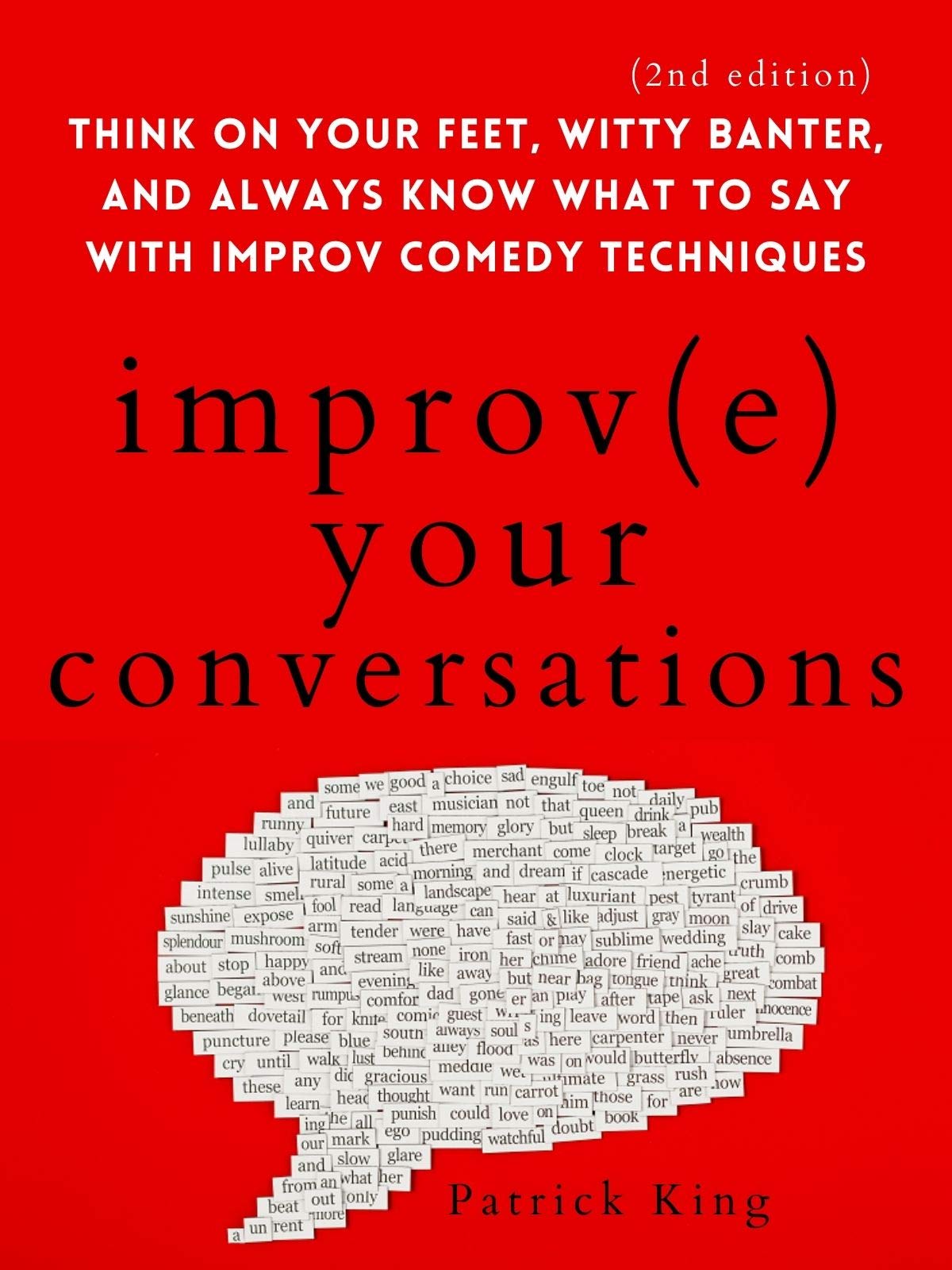What do you think?
Rate this book


236 pages, Kindle Edition
First published June 20, 2015
Improv comedy above all else teaches flow, and the ability to make something out of nothing - both of those things in pursuit of a common shared goal of a lasting interaction and deep connection with the people involved. Sound familiar to how a great conversation should be?
If you come into a conversation with a certain expectation about how it will go, or you want to push it into a certain direction, you're going to disrupt any type of flow you establish.
When you understand the emotional state of your audience and other players, you are basically given a template for where to go, and when to go there.
Perhaps improv is better phrased as using a situation-based approach to social interaction and conversation. When you know the emotional and contextual situation that is being conveyed, you have your guidepost, compass, and map.
Adopting the mindset of “Yes, AND...” means that you are collaborating with the person that you're talking with. It means that you are accepting the things and subjects that they bring to the table and working with them by adding to it - this preserves a flow, keeps them interested in the conversation at hand, and makes interactions as smooth as butter.
when you ask open-ended questions, you put the burden of keeping the conversation going on your partner.
It's not really a question of who can tell a better joke. Success in improv comedy turns more on how well you can read the moment.
When you prepare and focus on what you need to say next, you are the opposite of present. You are stuck in your own head, and not listening or observing at all - you're just waiting for your turn to speak.
Details are how people connect emotionally to situations and stories, and what make them reminisce and feel the pangs of nostalgia. It's always the fine details that bring a story to life, like someone's scent, or the way a book feels in your hand.
Unfortunately, bad conversationalists and bad improv comedians skimp on the details. Instead, they rely on the story alone to deliver the impact. Great storytelling and improv are all about setting the right framework with intimate details and telling the story that gets the right emotional payoffs from the crowd.
Real stories draw you in because your own internal narrative is put into the play. You can identify with the character that's going from point A to point B. Whatever drama they go through resonates with your own personal drama and issues. Effective conversationalists know this.
people talk to other people for three main reasons. Either they are looking for entertainment, pleasure, or general information and utility.
The secret to starting and maintaining great conversations is to learn to have broad outlines, then adapt to the person you are talking to. This is thinking on your feet and improvising.
You have to remember that when you talk to other people, the focus of the conversation should be about the conversation. It should not be about what you want and it is not about your agenda or what you are trying to get out of the other person. The moment other people are able to perceive this, guess what will happen? They will shut you out. You instantly become somebody worthy of suspicion and skepticism.
If you want to develop better relationships and become a more effective conversationalist and leader, you need to get people to feel that you've listened to them.
Improv comedy is about playing off others, and you can't do that if you are constantly waiting for your turn to talk and not listening to others. Sometimes you just need to shut up and listen patiently.